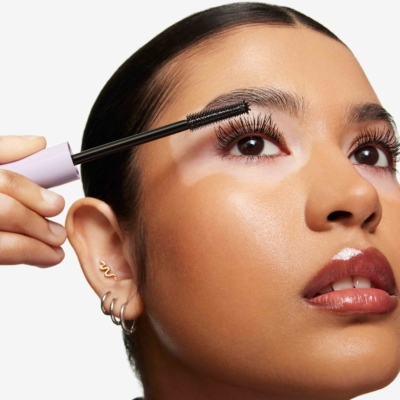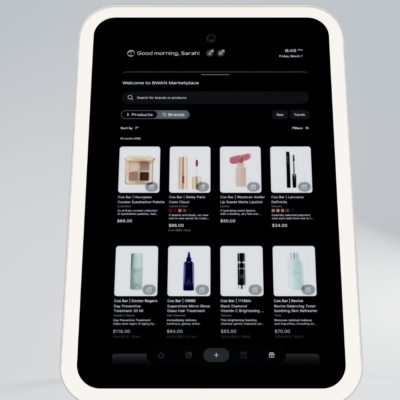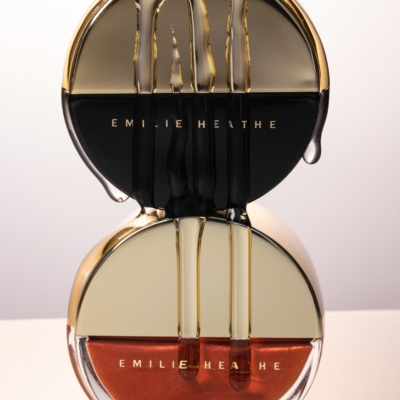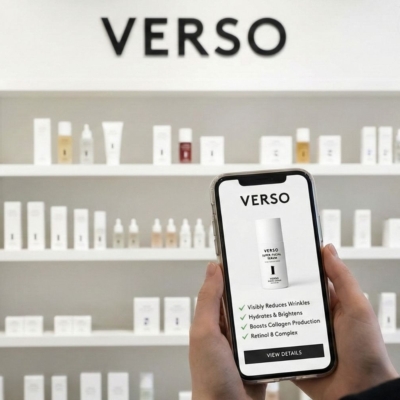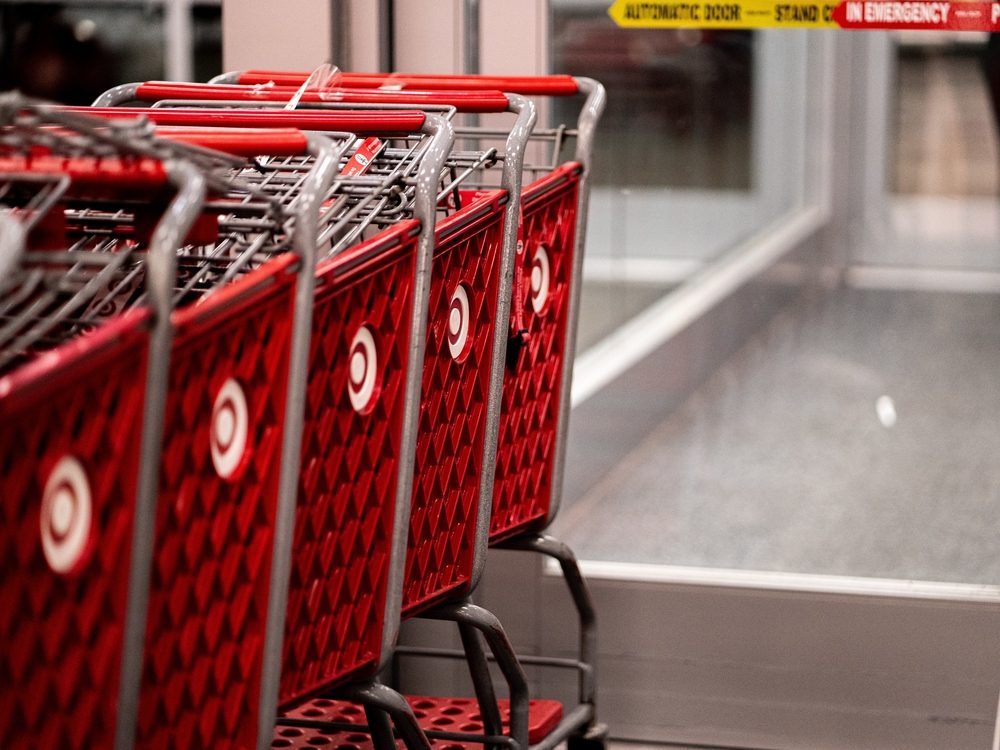
Beauty Brands Discuss Choosing The Right Retail Partners
In this edition of Beauty Independent’s ongoing series posing questions relevant to indie beauty, we asked 15 beauty brand founders and executives: How did you decide on the right partnerships for your brand?
- Amy Liu Founder and CEO, Tower 28 Beauty
Throughout my career in the beauty industry, Sephora has been the common variable across all the companies I've worked with. I can say firsthand that they truly build brands, and don’t just launch and leave them.
As a small brand with limited resources, I knew I had to partner with an influential retailer like Sephora that has a giant megaphone to help us find our customer and build trust because they’re the preeminent curators of the beauty industry. I’m so grateful I made that choice because they really have acted as an extended part of our team.
Sephora was my dream retailer from the beginning, and admittedly I've never been an expert at DTC, but I understand retail! I think as a brand founder you have to leverage your strengths such as my experience and relationships in the industry while acknowledging your weaknesses. I didn’t even have a personal Instagram when I launched Tower 28, so I had zero personal influence!
- Laura Schubert Co-Founder and CEO, Fur
We went into retail at launch as Fur has always pursued an omnichannel strategy. Moreover, since we were creating a category, we knew we needed the legitimacy an established partner provides. We have been deepening our relationship with retailers since then, from our very first partnership with Shen Beauty to our large relationship with Ulta and now to many other retailers.
- Jessica Stevenson Co-Founder and CEO, Everist
Our plan with Everist has always been to be where our customers want to shop. Customers don't think in channel silos like DTC and retail, but rather care about things like convenience and accessibility—and we think it's important to make sustainable products more accessible.
That said, when building our omnichannel strategy, we've placed a special focus on retail partners who are known to be great brand storytellers and lean into product education. We launched our partnership with Credo soon after our DTC debut last year as we felt our ethos and customer were perfectly aligned. They were supporters of our innovative hair care concept from the start and we have the utmost respect for the positive impact they are having on the industry.
This year, we are expanding with like-minded partners including The Detox Market to accelerate growth and allow our customers more opportunities to try our waterless pastes IRL.
- Ayssa Di Pietro Founder, Miami Beach Bum
Since launch, omnichannel distribution has always been a part of our strategic growth plan at Miami Beach Bum. In June 2019, we first launched DTC, with a few select boutique retail partners in South Florida.
We wanted to be able to give our community personal attention and learn more about them and what they want as we grew our collection. That's why our HQ in Sunset Harbor, Miami Beach also has a street facing boutique for people to experience Miami Beach Bum IRL!
When national medium-sized beauty retailers like Revolve and L*Space wanted to carry us online, we knew the demand was there for our collection to sit on national retail shelves. Since closing our seed round earlier this year, we have now started to explore securing one main anchor retail partner.
The right partner for our brand has a lifestyle and skincare element, free and fast global shipping for our growing community, and appreciates our innovative and science-backed formulas and sustainable supply chain. Oh, and they love our Miami vibes.
- Allison Taylor Co-Founder, Le Prunier
We wanted to initially test the waters, so we attended Indie Beauty Expo in New York in November 2017 with prototypes of our packaging. Much to our surprise, we quickly met Neiman Marcus at this show, and they ended up being our very first retail partner.
From there, we launched online and in store with Credo Beauty and have steadily built our wholesale business over the course of several years. Due to our amazing distribution partnerships, we’ve established a retail presence in the U.S., Europe, United Kingdom, Canada, Korea and the Middle East.
- Tisha Thompson Founder, LYS Beauty
I always knew that having brick-and-mortar distribution would have to be a key part of my brand strategy. When launching a brand, it's crucial to align with the right retail partner to introduce it to the market, and it's such an honor to be the first Black-owned clean makeup brand to be sold at Sephora.
As a complexion-focused brand, it's very important to have both an online and in-store presence to allow customers to interact with the products directly and find the perfect shade match. To aid customers in doing so virtually, we offer many tools that help reduce the friction and fear of buying complexion products online, but there's no replacement for the in-store experience that allows customers to touch, feel and play with products IRL.
- Suzannah Raff Founder, Cleo+Coco
We have a very unique story in that we won QVC’s The Big Find contest, and by the time all due diligence was completed, we ended up launching our rebranded Cleo+Coco products live prime time on QVC a month before COVD hit.
QVC is the second largest retailer in the world, so this was huge. So, we didn’t really make such a calculated guess on whether to go into retail. We were so thrilled to win The Big Find and go on air with QVC, we just jumped in.
We sold out in the first 10 minutes of the show. We basically created the clean deodorant category on QVC and continue to sell out successfully each airing with them, until today. For us, it meant that we spent most of 2019 meeting the inventory and shipping demands of this huge retail partner. It also meant that we were able to grow our brand really fast, even during a pandemic.
We are so grateful to QVC and their incredible platform for this partnership. We were pushed to scale faster than we would have dreamed of and learned so much, so fast, along the way. We were fortunate that we had access to capital and a solid supply chain set up, to be able to scale and meet the demand.
On the flip side, it's also very risky because if you don’t sell successfully with them, you could be left with a lot of excess inventory. Large retail chains have all the power in these relationships. The risks are great, but so are the benefits.
Since launching on QVC, we have had the opportunity to spend the last few years building our other distribution channels like DTC and smaller wholesale partners. What we learned is that when you work with a large retail partner, you have to really have your supply chain and cash lined up to be able to scale as fast as they demand, successfully and be ready to support that success in every way, and view them as the valuable partners that they are.
- Lindsey Martin Founder, Kiramoon
When we launched in January 2021, we turned down many retail inquiries because it felt too risky to start a relationship that early on. This may not apply to all brands, but, in my case, I was new to the industry and wanted a bit more runway to confirm that our products and suppliers were ready to support a retail relationship.
After a few months in business and dozens of five-star reviews, I felt the products were ready and we began retail conversations. In terms of picking the right retailers, I think it comes down to who your customer is and where they shop. It can be tempting to take any retail opportunity that is presented to you, but it will cost you more in the long run if you sign onto retailers that are misaligned with your customer base.
- Heather Fink Founder, The Sexiest Beauty
I knew it was the right time to get into retail the day I launched my brand, but retail didn't seem to know it. It doesn't necessarily happen when you want it to. So, the right time is when retail is ready to take you.
When you've got some buzz, credibility, a customer base, amazing reviews. In my case, I leaned into the niche, specialty platforms whose customers are looking for high-performance products from an indie brand with a conscience.
- Sam Nebel Founder and CCO, Goodwipes
We were adamant about omnichannel early on, with a greater emphasis on brick and mortar. With the heightened success of Dollar Shave Club and other DTC unicorns, we were scrutinized ruthlessly by outside non-stakeholders. Fast forward to now and we are the fastest-growing flushable wet wipes brand in the USA. Turns out that, from the folks pushing us to do subscription-only, it was in fact a stupid question at the time!
- Danielle Conte Founder, Conscious Coconut
For seven years, marketing has encouraged customers to embrace the multitasking nature of organic coconut oil and to "travel light" by replacing 10-plus personal care items with a single packet or tube of coconut oil. My dreams came true earlier this year when we teamed up with JetBlue for their amenity kits.
As we continue to grow in the travel wellness space, a customer will gratefully treat themselves to a coconut oil jar at the Four Seasons, hydrate and soothe with a wipe or packet on their flight and pick up a tube at their local Whole Foods.
- Michael James Founder, Frederick Benjamin
For us, our dot-com was doing really well, and we were getting customers asking if we are sold locally. At that point, I knew it was time, and it just so happen that we partnered with Target and there is just no better partner for startup brands than Target. So, we jumped at the opportunity!
- Anastasia Bezrukova Co-Founder and CEO, Minori Beauty
I decided to work on getting into retail in the early days of developing the brand. I knew that growing brand awareness on a shoestring budget, through PR and influencer marketing would not be enough to get us the early visibility we would need. I wanted to work with an established retailer to introduce us to an existing customer base that was passionate about conscious beauty.
Having spent a big part of my career in beauty working in Toronto, I was an early fan of The Detox Market. I set out to build a relationship with the buyer of the Detox Market when we were in early stages of formulating the products, which allowed us to triple check compliance with their ingredient standards. Looking back, this was one of the best early decisions I made, as without retail presence, it is become more and more costly to break out with a DTC-only approach.
- Sue Lee VP, DKCOS/Unicorn Glow
In the late 2000s, when K-Beauty received worldwide attention, it was very disappointing that K-Beauty was known in North America as a brief fad for its concept and price rather than for the essence of K-Beauty.
So, we started providing K-beauty to retailers through localization to appeal to North American consumers so that they could experience the innovative and high-quality products that are the essence of K-Beauty. This strategy has been successful in the market and we have partnered with several retailers including Walmart, the world's number one, to introduce innovative and cost-effective brands to the North American market.
A good partner is a partner whose brand meets the needs of the partner's customers and can provide consumers with opportunities to experience it. In particular, we prioritize partners who provide opportunities to meet more consumers with high-quality and cost-effective products.
For example, Walmart is the largest retailer in North America and worldwide, providing consumers with good products at reasonable prices under the motto of "everyday low price.” It can be said that the company is in line with its values.
Through Walmart, K-Beauty's localization has been realized in North America, and several brands have been introduced in various categories and have been loved by Walmart consumers for the past several years.
- Christine Mason Founder and CEO, Rosebud Woman
We planned for retail from the outset, but had expectations that our category would be limited to forward-thinking independents, integrative health advocates and niche, luxe purveyors. Even though there was a lot of resistance to the category, that's changed significantly since 2018.
We are especially grateful for Detox Market, thanks to industry veteran and buyer Elena Severin, for their deep commitment to full body wellness. As the category hit some proof points, we moved into Neiman Marcus, Nordstrom, Anthropologie, Saks, Bloomingdales, Indigo Canada, and soon will launch with TSC and Holt Renfrew.
While there is still some discomfort with addressing women’s basic intimate needs, experimentation is happening. We especially like to partner with companies that have forged trustworthy relationships with women, and who will invest in this immense category and the vital education required to grow it. Anything that comes out of the shadows is an opportunity.
As a small brand, there’s still so much we don’t know and can't control with retailers. We'd love more visibility to robust analytics that allow us to make sound operating or investment decisions, or how much and who do we invest in and when do we see a return? Is it a profitable relationship for both of us?
We now know how much it costs us to acquire a customer, and our DTC channel has a much higher contribution margin, which suggests the retail channel is getting overpaid, and there's a chance for efficiencies there. The cost to serve larger companies, their chargebacks and payment practices require a lot of investment, also. Account level profitability varies widely by how easy a retailer is to work with.
If you have a question you’d like Beauty Independent to ask beauty entrepreneurs, executives and experts, please send it to [email protected].


